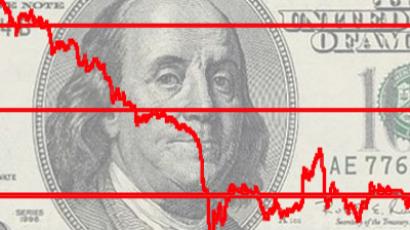Russian markets ride the volatility
With Russian equities being buffeted by the global selloff, in the wake of the S&P downgrade of U.S. debt, Business RT spoke with Morgan Stanley chief economist Jacob Nell about the implications for the Russian market.
RT: What's the downgrade's effect?JN:“Well it’s a good question, because after S&P downgraded the U.S., U.S. Treasury bills actually rallied, i.e. people found that it was a safe haven in a time of uncertainty, and bought more of the downgraded sovereigns instruments. I think this shows the basic problem of the downgrade because U.S. Treasury bills are the deepest and most liquid financial instrument out there, and everybody measures their credit worthiness to U.S. Treasury bills. So what does it mean to downgrade the Treasury bill? It is a very difficult question, and markets are still trying to work it out.”RT: and what about the effect on Russia?JN: “The effect on Russia is not direct. The key thing to watch for Russia is the oil price. If the oil price goes below about $80/bbl then Russia is in trouble. And if it stays above $80/bbl then Russia is fine, because oil is so crucial for both the balance of payments and exports and for the budget. We don’t expect a repeat of 2008. We had a funding crisis in developed markets, which hit growth and then hit commodity prices, and then hit Russia. At the moment we still see the support for commodity prices is still there. Basically the force that keeps oil prices up is the consumer in the emerging world. Lets say in China. And they continue to buy more oil, and that is supporting oil prices at the moment. So although we expect some volatility, some choppiness, looking ahead it seems like Russia is reasonably well supported with oil at around $100/bbl at the moment.”RT: Standard & Poor’s gave triple A rating to sub prime mortgage securities which were at the heart of the financial crisis. So how credible are they and the other agencies now?JN:"Well I think ratings agencies are useful as a source of information to help you think about the risks that you are facing. But everybody who operates in the wholesale markets should be trying to think things through for themselves, and so I think that it was useful that S&P downgraded the U.S. because it has provoked a debate about what it mean to be AAA, what does it mean to be a highly rated credit. I think that it is going to be wrong to assume that ratings agencies somehow have better information, or know more than other participants in the wholesale markets, and I think that we are going to see the traditional oligopoly or ratings agencies, Standard & Poor’s Moody’s and Fitch, be challenged by new entrants with different perspectives. Because in the past they have tended to travel in a pack and they have been procyclical. When everybody has thought there was no risk, they have said there is no risk, and when everybody says there is a lot of risk they see a lot of risk, and I think that that can add to volatility rather than reduce it.”RT: Do you think the position of the dollar as the global reserve currency is undermined by a downgrade?JN: “Well I think that the dollar is so widely used in some many markets – in the oil market, in domestic markets such as Russia and Ukraine, so widely – that it would take a long time for it to lose its core role as a reserve currency. And where else would you go? You could go into the Euro, but the Euro has got problems. You could go to Japan but Japan’s debt is over twice as high as the U.S. You could maybe go into the Swiss Franc or Swedish Krona or the Australian dollar or the Canadian dollar, but these are all relatively small economies. They are not deep enough or liquid enough to perform the function of a reserve currency. So I think that we are going to be stuck with the dollar for some time to come. If you look at the history of the Pound Sterling, that used to be the world’s reserve currency, and Britain stopped being the major economy in the world in the 1880’s but it stopped being the reserve currency only in the 1960’s. so it can take decades for this effect to work it’s way through.”














